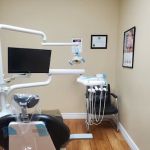How to Find the Perfect Dentist for Your Needs
Choosing the right dentist is a crucial decision for maintaining your oral health and ensuring that your dental experience is a positive one. As someone who’s had both positive and not-so-great dental experiences, I can tell you that finding a dentist who not only meets your medical needs but also makes you feel comfortable and confident in their care is incredibly important. After years of switching dental practices and dealing with different kinds of treatments, I learned a lot about how to choose the perfect dentist for your needs. Here’s my step-by-step guide based on my personal journey, and I hope it helps you find the right one too.
1. Understand Your Dental Needs
The first step to choosing the right dentist is understanding what kind of dental care you need. When I started looking for a new dentist, I realized I wasn’t entirely sure what exactly I was looking for beyond routine cleanings. I knew I needed someone who could handle basic checkups, but I also had some ongoing dental issues, like sensitive gums and teeth, that required special care. It's essential to consider what kind of treatment you might need in the future or whether you have specific concerns such as cosmetic dentistry, orthodontics, or implants.
If you have children, finding a pediatric dentist with experience working with younger patients might be the way to go. If you're someone who’s afraid of dental procedures, finding a dentist who specializes in sedation dentistry could help ease those worries. Knowing your needs helps narrow down your options and guides your search.
2. Ask for Recommendations and Read Reviews
One of the best ways to find a reliable dentist is through personal recommendations. When I moved to a new city a few years ago, I asked friends, family, and even coworkers for suggestions. It's always reassuring to hear about others’ personal experiences with a dentist. You can also check online reviews, but it's crucial to read them carefully. Some reviews may be overly positive or overly negative, so I recommend looking for patterns. If multiple people mention that a particular dentist is gentle and explains procedures clearly, that's a good sign. Likewise, if several reviews mention long wait times or poor customer service, that’s a red flag.
Another helpful tip is to look for reviews that discuss the office staff and the overall atmosphere of the clinic. I once had a great dentist, but the office staff was so disorganized that it made the entire experience frustrating. It’s important to consider the environment in which you’ll be receiving your care, as that can significantly affect your overall comfort level.
3. Check Qualifications and Experience
Dental care is a very specialized field, and you want to make sure that the dentist you choose is fully qualified to handle your needs. When I started researching dentists in my area, I made sure to check their credentials. Most reputable dentists are happy to provide their educational background, certifications, and any special training they’ve received. You can also check with local dental boards to ensure that the dentist is licensed and has no history of malpractice claims.
Beyond basic qualifications, consider the dentist’s experience. How long have they been practicing? Do they specialize in any specific area, such as orthodontics or cosmetic dentistry? For example, I found a dentist who had been practicing for over 15 years and specialized in restorative dentistry. This gave me peace of mind, especially since I had some old fillings that needed attention. If you’re seeking more specialized care, you may want to choose someone with additional certifications in that area.
4. Consider Office Location and Hours
For practical reasons, the location and hours of the dental office are incredibly important factors to consider. After all, you’re more likely to keep up with regular appointments if it’s easy to get to the office. I once had a great dentist, but the office was too far away from my home, and I found myself skipping appointments. Look for a dentist whose office is conveniently located near your home or work, so scheduling is as hassle-free as possible.
Additionally, pay attention to office hours. Some offices only offer limited hours, making it difficult to find a time that works with your schedule. Look for a practice that offers flexible hours, including evenings or weekends, so you can easily make appointments without disrupting your work or personal life.
5. Schedule a Consultation
Once you’ve narrowed down your options, schedule a consultation. Many dental offices offer free consultations or initial exams, which can be an excellent way to get a feel for the office and dentist before making a commitment. During my consultations, I paid close attention to how the staff treated me, how long I had to wait to be seen, and how comfortable I felt during the exam. I also took this opportunity to ask the dentist about their approach to dental care, any treatments I was concerned about, and how they handle emergencies.
For me, a friendly, approachable dentist was essential. I didn’t want someone who would rush through my appointment or make me feel uncomfortable. It’s important to find someone who listens to your concerns and takes the time to explain things clearly. If you feel rushed or misunderstood, it may be worth considering a different practice.
6. Evaluate the Cost and Insurance Compatibility
Before settling on a dentist, it's important to evaluate the cost of treatments and whether the dentist accepts your insurance plan. Dental care can get expensive, and while most insurance plans cover basic services like cleanings and checkups, some may not cover more complex procedures like implants or cosmetic work. I learned this lesson the hard way when I chose a dentist that didn’t accept my insurance. It ended up costing me a lot more than I had initially planned for. Make sure to ask about pricing and check whether your insurance is accepted before making a decision.
Even if your insurance covers the procedure, don’t hesitate to ask about out-of-pocket costs. Some practices offer payment plans or financing options, which can make dental treatments more affordable. If you’re not sure about the cost, take the time to inquire about everything upfront to avoid any surprises later on.
7. Pay Attention to the Office Environment
The atmosphere of the dental office plays a significant role in your overall experience. I’ve been to several offices where the environment was either too sterile or too chaotic, which made the whole visit uncomfortable. Ideally, you want a welcoming, clean, and organized office. Check if the office is well-maintained, with up-to-date equipment and modern facilities. A pleasant environment will help reduce any anxiety or stress you might have about visiting the dentist.
During my visits, I paid attention to how the staff interacted with each other and with the patients. A well-organized, professional team will make your experience more seamless and less stressful. A warm and friendly receptionist can make all the difference when you arrive for your appointment, setting the tone for the entire visit.
8. Trust Your Instincts
In the end, choosing a dentist is also about trusting your instincts. Sometimes, the decision goes beyond what you’ve read in reviews or seen during consultations. When I finally found the right dentist for me, it was because I felt comfortable with them on a personal level. They took the time to listen to my concerns and made me feel heard. Your gut feeling about a practice is an important factor in ensuring that you’ll return for future appointments.
Remember, your dentist will be someone you trust with your health, so it’s important to feel confident in their abilities and comfortable in their office. If something doesn’t feel right, don’t hesitate to look for another option. Your oral health is too important to settle for anything less than the best care.
Choosing the right dentist can make a significant difference in your dental care experience. By considering your needs, researching options, and taking the time to visit potential dentists, you can find someone who fits your requirements. Take your time, trust your instincts, and don’t be afraid to ask questions to ensure that your dental experience is as positive and comfortable as possible.







 Scott Soderquist, DDS, MS0.0 (0 review)
Scott Soderquist, DDS, MS0.0 (0 review) Willamette Dental Group - Tacoma3.0 (203 review)
Willamette Dental Group - Tacoma3.0 (203 review) Kevin Walker DDS and Mae Lee Springer DDS5.0 (125 review)
Kevin Walker DDS and Mae Lee Springer DDS5.0 (125 review) McLemore Dentistry4.0 (330 review)
McLemore Dentistry4.0 (330 review) Reynolds Family Dentistry of Richmond4.0 (19 review)
Reynolds Family Dentistry of Richmond4.0 (19 review) Densley Dental4.0 (260 review)
Densley Dental4.0 (260 review) The Importance of Oral Health Education During Pregnancy for a Healthy Pregnancy
The Importance of Oral Health Education During Pregnancy for a Healthy Pregnancy Best Tips for Brushing Your Teeth Properly for Healthy Gums: Essential Techniques for Oral Health
Best Tips for Brushing Your Teeth Properly for Healthy Gums: Essential Techniques for Oral Health Why Skipping Dental Checkups Can Lead to Bigger Oral Health Problems
Why Skipping Dental Checkups Can Lead to Bigger Oral Health Problems Advantages of Porcelain Dental Restorations
Advantages of Porcelain Dental Restorations How Can Diabetes Cause Tooth and Gum Problems? Preventing and Managing Oral Health Issues
How Can Diabetes Cause Tooth and Gum Problems? Preventing and Managing Oral Health Issues Healthy Habits for Promoting Good Oral Health and Hygiene: Tips for a Healthy Smile
Healthy Habits for Promoting Good Oral Health and Hygiene: Tips for a Healthy Smile